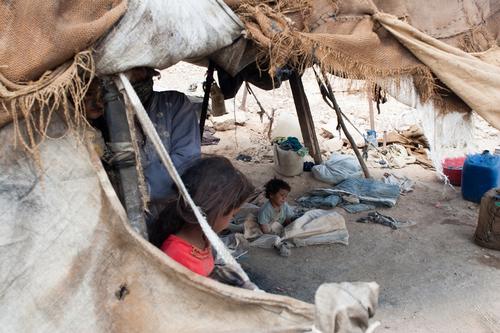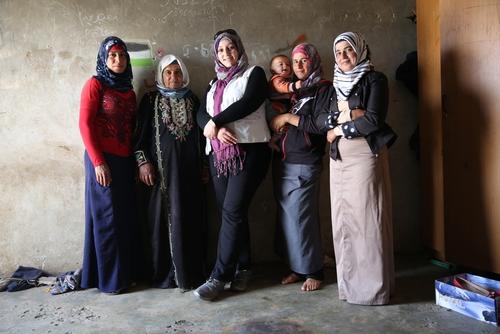Tensions have increased in the hills to the east of Jerusalem where some 2,500 Palestinian Bedouins live. The tents and metal shacks where they live and keep their animals are being demolished by Israeli officials in an attempt to force them off their land and push them to live in urban areas in the West Bank.
These Bedouin communities received a formal notification from the Israeli authorities in August, warning them to evacuate or else they would be forcibly expelled if they refused to leave.
“The affected communities tell our psychologists that they feel stressed, fearful and helpless for their future. Children present regressive symptoms like bed wetting and difficulties to separate from their mothers,” says Juan Carlos Cano, general coordinator for MSF in the Occupied Palestinian Territories. “We have increased our support in the last two months for those affected and in need of mental health assistance,”
Palestinian Bedouin communities are shepherds and rely on their goats, sheep and lands for their livelihood. They are against being resettled to urban areas as it clashes with their traditional nomadic lifestyle, and they won´t be able to make a living if they lose their grazing areas. Besides losing their homes and animal shelters, the Bedouins are also facing access restrictions to their lands, resources and markets to sell their products.
MSF response in the east of Jerusalem
MSF has been working in the area for the last three years and has increased its mental health activities with some of the Bedouin communities in Anata, Aza’em and Hizma, in the east of Jerusalem.
In 2014, the psychosocial workers of MSF have conducted 18 group sessions of both psychological first aid and psycho-education with 281 beneficiaries (147 women and 136 men). The team has also conducted 30 psychological first aid interventions.
Elsewhere in the east of Jerusalem, tensions are also growing. In Silwan, one of the most affected areas, more than 25 apartments have been occupied by Israeli settlers during October, as clashes, police incursions and detentions happen daily. The MSF mental health team has offered psychological first aid through individual and group sessions aiming to prevent mental health problems among the people affected by the violence.
From July to September alone, MSF assisted 532 new patients at several locations in the east of Jerusalem.





